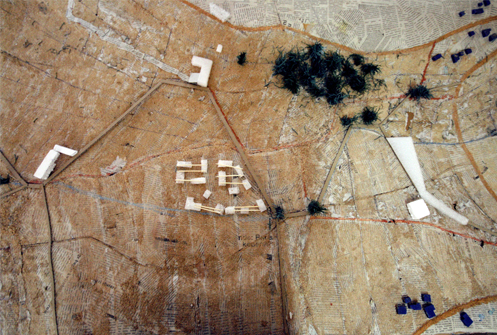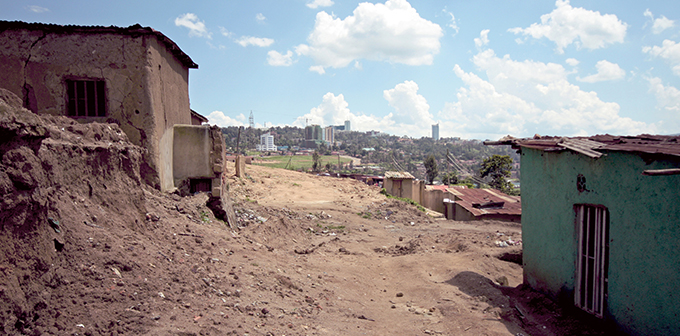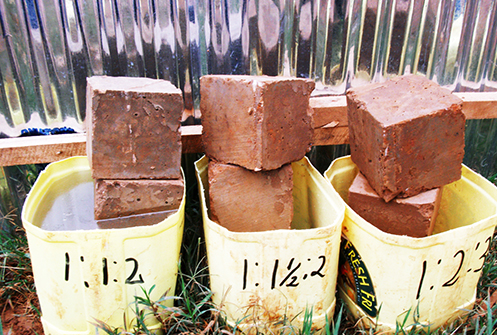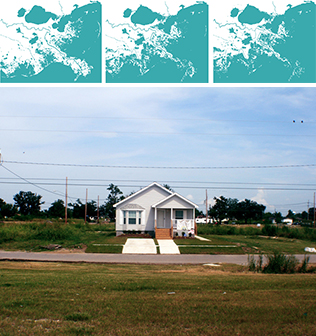Theoretical work is carried out through a combination of field research, analytical mapping and urban & architectural propositional testing. Research begins at an urban scale, where spatial ruptures of conflict and power are most visible. The vulnerability of post-conflict cities (and states) and their exposure to utopian visions and master planning ,which are invariably neo-liberal in their interests, lead to what can be called ‘Turbo Urbanism ’.The loss of public space, erection of generic speculative high-rise with the commensurate eradication and marginalization of low-income/inner city communities and the impact of the interdependency between urban infrastructure, settlements patterns and ecosystems is a focus of this research. This research informs a practice of sustainablilty in which low-cost construction or ‘appropriate’ technologies are favoured.
AFO have carried out such research , published papers, conributed to and curated exhibits, delivered lectures on the subject of geo-political territories within South Africa, UK , Rwanda, Northern Ireland and New Orleans. We are visiting studio tutor's at the KTH in Stockholm, Gothenburg, Johannesburg and KIST(Rwanda).
AFO research informs and motivates our teaching & practice. AFO theoretical interests are varied but lie principally within the exploration of the relationship and interactions between the man-made (social, political, economic) and the natural (eco-systems etc) and resultant impacts upon the built environment.
-------------------
AFO research focuses on three main areas –
1. Poower structures and transformations within post-conflict built environments.
2. Relationship between human settlements and natural/manmade environments
3. Architecture’s role as public service as a sustainable practice.
-------------------
Research, teaching and practice underpin motives to elicit more effective results within architecture as as a service, as opposed to architecture as a product.

GEOPOLITICAL ECOSYSTEMS:
An interest in geo-politics and ecologies first emerged during time in New Orleans following Hurricane Katrina where oil & gas multi-nationals exacerbated erosion of natural wetlands around the city, through the dredging of canals in order to expedite tankers shipping times between the Gulf Coast to the Port Of New Orleans. In turn wetland erosion has weakened New Orlean’s natural defensive barrier against hurricanes and increased its exposure to flooding; the destructive results of which in 2005 have permanently fragmented the physical and social fabric of the city.
Images and Maps / AFO©



| Architectural [Field] Office © is a registered Charity | All rights reserved | E: hello@architecturalfieldoffice.org |
POST-CONFLICT URBAN TRANSFORMATIONS;
The vulnerability of post-conflict cities (and states) and their exposure to utopian visions and master planning ,which are invariably neo-liberal in their interests, lead to what can be called ‘Turbo Urbanism’.The loss of public space, erection of generic speculative high-rise with the commensurate eradication and marginalization of low-income/inner city communities (informal in Rwanda and South Africa) and the impact of the interdependency between urban infrastructure, settlements patterns and ecosystems is a focus of this research.
Image of Kigali settlement clearance AFO©
 |
|||||||||
| Architectural [Field] Office | About | Fieldwork | Observations | ||||||
| - - - - - - - - - - - - - - - - - - - - - - - - - - - - - - - - - - - - - - - - - - - - - - - - - - - - - - - - - - - - - - - - - - - - - - - - - - - - - - - - - - - - - - - - - - - - - - - - - - - - - - - - - | |||||||||